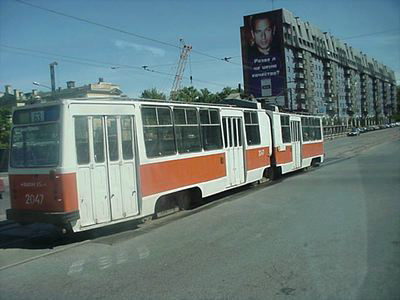No Light Rail in Vancouver!
Ottawa City Council Kills Light-

In what I regard as a victory for common sense, the Ottawa city council has killed
a planned light-
The 18-

Light rail passing high-
But after having spent CN$65 million on the project, a new city council elected in
November decided light rail was a waste of money. In December, they voted 13-
Siemens, which had the contract to build the line, threatened a lawsuit. Earlier this month, the company sent a letter to the city asking for CN$175 mllion for “wrongful termination of the contract.” Of this, CN$25 million was for money already spent and the rest was for “lost opportunities and profits.” Alternatively, the company said it would build the light rail, but due to the delay, it would now cost CN$70 million more — provided the city agreed to it by the end of February.
The city council, however, rejected this offer, a majority saying they did not want the light rail. Siemens may end up suing, but the city probably expects to pay something less than the CN$175 that Siemens requested.
This is a rare counter-

The last flight of the Concorde. Photo by Adrian Pingstone.
As one paper on the Sunk-
Some consider the Concorde to be a technological success particularly in view of
the rivalry between Europe and the United States, which decided not to subsdize a
supersonic passenger liner. But a paper on the Sunk-
On one hand, it is pretty amazing that the United States can afford to burn up more than $100 billion (adjusted for inflation) on capital improvements in rail transit over the last fifteen years even though the returns from such investments are zilch. On the other hand, if we want to stay competitive with Europe and, especially, Asia, we are going to have to invest more wisely in the future.
4
Trackback • Posted in News commentary, Transportation
Reprinted from The Antiplanner